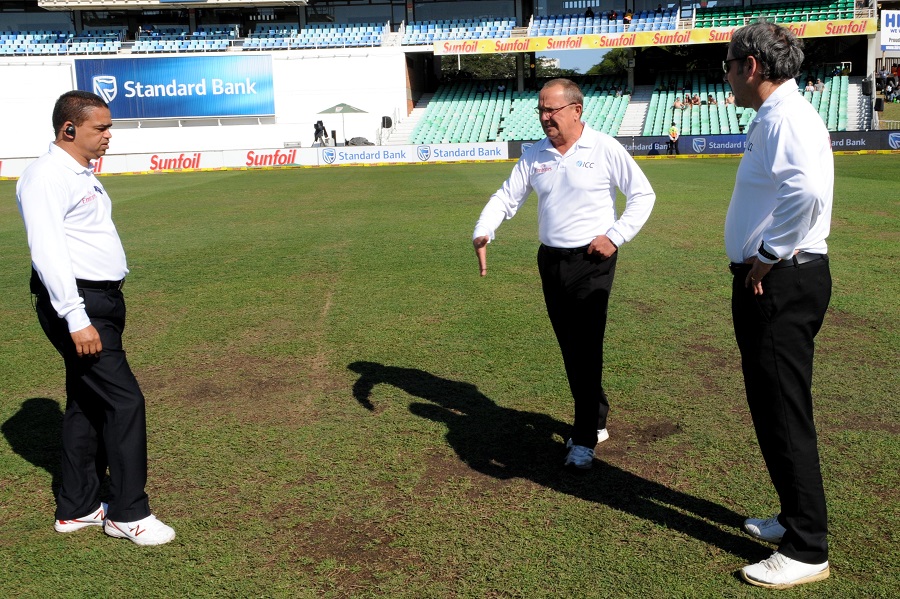
Another Long Delay On Fourth Morning
Looks deceived at Kingsmead when despite blue skies and sunshine, no play was possible on day three. A wet outfield, which has not recovered from the recent relaying process, took 65mm of rain overnight and did not dry out over the course of the morning and early afternoon.
On Sunday the field received a full day of sunshine but despite all that, has remained unplayable causing yet another long delay to the start of Day Four on Monday morning.
Dale Steyn, Vernon Philander and the rest of South Africa's attack will find conditions completely different to what they were when they took the field on Saturday afternoon. The overcast skies and persistent drizzle have moved away and after a full day of sun, the pitch would have flattened out.
After rain interrupted play on Saturday afternoon, a steady drizzle turned into a downpour and although the showers had abated by 6am, the outfield was covered with water. Conditions improved significantly between then and 9:30, when it was announced that the morning session would be lost and an inspection would take place at noon.
The umpires asked for no artificial measures to be used in drying the outfield in that time, preferring to use the natural processes of sunlight and wind. The super-sopper was not brought out because the muddy patches were too soft and using it would only have worsened the damp outfield.
By 12pm, there was further improvement but areas outside the square - which were in pristine condition - and along the perimeter of the outfield, where scant grass had left the sandy patches exposed, were still too wet. Underfoot conditions were deemed "treacherous," and a second inspection was planned for 2pm.
Even then, the damp patches had not improved enough for play to resume.
Of particular concern were patches where puddles had gathered at the edge of the covers, which will lead to questions over the number of covers at Kingsmead. Currently, Kingsmead's covers keep the pitch and square protected but do not extend to the rest of the outfield. It is estimated that Kwa-Zulu Natal Cricket Union would need around R400,000 (US$30,000) to better protect the ground. Should cricket be played in winter again, that investment may have to be made but this time, few would have expected it was needed.
Winter rainfall has been prevalent this year despite it being an unusual occurrence in Durban. In the last three weeks, the same amount of rain has fallen that the city usually gets over the three months from August to October. The excessive rain, along with the delayed start to the relaying of the outfield which took place in June, left the outfield unable to cope with the unexpected moisture.
Light was also a concern with early sunsets threatening to eat away at playing time, but play continued until 5:20pm on the first day. Still, 12.2 overs were lost on day one and 68 on day two, bringing the total number of overs lost to 170.2.
Still, 180 overs remain and with good weather forecast for the next two days, there may be enough time for a result other than a draw. Sunday's tickets will be valid for the remaining two days or for a Dolphins domestic match later this season.







Comments